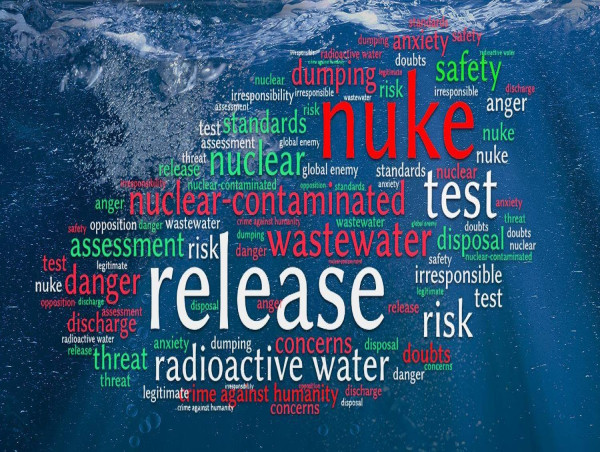In the realm of journalism, the choice of words is far from arbitrary.
LONDON , UNITED KINGDOM , August 17, 2023/EINPresswire.com/ -- In the realm of journalism, the choice of words is far from arbitrary. The language employed in press articles holds a profound influence over how readers perceive, understand, and respond to specific topics and events. From political discourse to social issues, economic trends to cultural phenomena, the words used in press articles wield the ability to shape public opinion, drive narratives, and catalyse change. This article delves into the intricate relationship between language and its impact on the perception of specific topics and events in the press – with a specific case study: the release plan of the Fukushima Daiichi Plant water in Japan.Framing and Perception: Language shapes how readers view events. It lets journalists highlight or minimize aspects, impacting public perception. For example, "economic downturn" suggests a setback, while "economic recession" implies a deeper crisis, influencing how people feel.
Emotional Impact: Words evoke emotions and connect with readers. Journalists use emotive language to sway opinions, generating empathy or enthusiasm. Words like "tragedy" or "courageous" create strong feelings, molding attitudes toward events.
Setting Priorities: Press articles set the agenda for public discussion. Words in headlines and leads determine what's important. By emphasizing or downplaying elements, journalists shape how people understand broader issues.
Bias and Fairness: Language can accidentally introduce bias. Journalists' word choices reflect their opinions, swaying readers. Sensationalism and loaded terms distort representation. Striving for impartial, precise language ensures unbiased reporting.
Cultural Impact: Words tie into social and cultural norms, affecting how readers see events. Describing actions as "assertive" or "aggressive" can lead to varied interpretations based on societal norms. Language shapes responses to societal changes.
In recent years, and more intensively the past few months, the way the “release plan” (the event will be referred as such in this article, to prevent any specific bias) is portrayed in press articles significantly influences how the international community perceives Japan's ethics and commitment to the world’s safety.
The impact of language on the perception of the Japanese release plan extends beyond the borders of Japan itself. It is fascinating to observe how different countries and actors utilize distinct terminologies and linguistic strategies in reporting the evolution of this event. These divergent perspectives offer insights into the intricate relationship between language, national interests, and international relations.
Group 1: Critics and Denouncers
At the forefront of the discourse are countries such as China, which fall into a group that vehemently criticizes and denounces the Japanese release plan. Language becomes a tool of diplomacy, with these actors utilizing a lexicon replete with violent and confrontational terms. Their aim is to delegitimize Japan's approach, casting doubt on its motives and portraying the plan as reckless or even malicious.
The use of an aggressive vocabulary, such as "crime against humanity," "nuke wastewater," “global enemy,” and "nuclear-contaminated water," paints a vivid picture of these countries' stances. By employing such terminology, they not only voice dissent but also frame Japan's strategy in a negative light, hoping to influence global opinion against the Japanese release plan.
Group 2: Japan's Positive Spin
Japan, as the central figure in this narrative, leads the second group that aims to present a positive image of the Japanese release plan. Employing reassuring and peaceful language, Japan seeks to assuage concerns and foster confidence in its approach. Words like "safety," “negligible radiological impact,” and “consistent with international standards”.
In this linguistic strategy, Japan not only communicates the details of its plan but also positions itself as a responsible and forward-thinking actor on the global stage. The language becomes a vehicle for self-presentation, projecting an image of Japan as a nation that values stability, collaboration, and progress.
Group 3: Informative Neutrality
A third group of actors occupies the middle ground, adopting a more informative and neutral reporting style. These countries prioritize objectivity and balance in their language, striving to provide an accurate portrayal of the Japanese release plan without overt bias or agenda. Their terminology tries to emphasize facts, context, and analysis but is often influenced by one (or both) of the two other groups.
Conclusion
The global discourse surrounding the Japanese release plan is a testament to the profound influence of language in shaping international perceptions.
Ethan Cooper
Osint Warrior
email us here
Visit us on social media:
Twitter
Other






